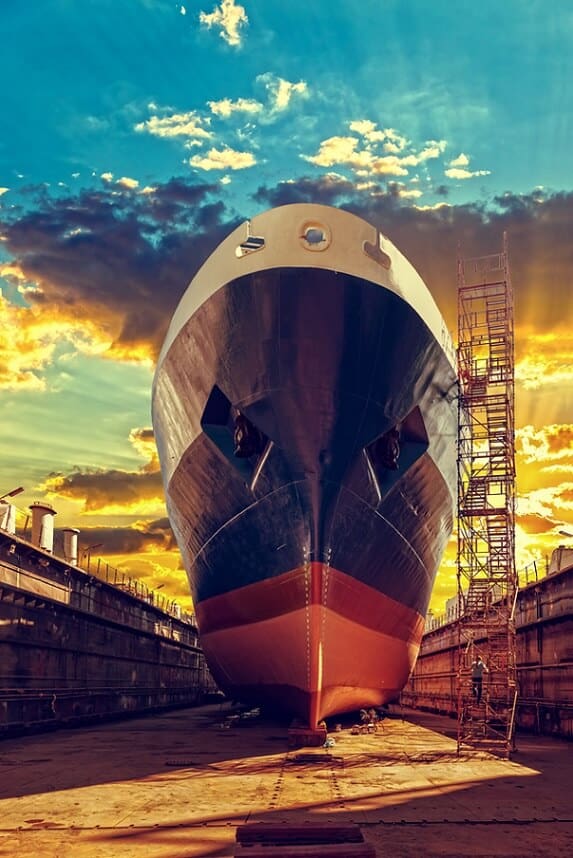Maritime Lawyers – Trade & Transport Law Expert
We are experienced in all aspects of international trade & transport law.
Experienced Trade and Transport Lawyers in Sydney
Get expert solutions with TLB LAW & CO’s award-winning Maritime Lawyers and Transport Lawyers. Lead by Terri Bell, our expert trade and transport lawyers offer a wide range of trade and transport law services, including:
- Cargo claims and disputes
- Marine claims and insurance matters
- Ship arrests
- Logistics & sales contracts
- Collection of outstanding freight and other charges
- Container detention
If it’s transport law related, chances are we’ve dealt with it!
Terri Bell personally has almost 15 years’ experience in trade and transport law. She leads a team that understand the intricate legislative details to provide you clear and up-to-date advice.
Award Winning Australian Maritime Lawyers
TLB LAW & CO is an award-winning maritime firm that in 2019 & 2020 was named in the prestigious Doyle’s Guide for being one of Australia’s leading Admiralty, Shipping and Maritime Law Firms.
With a profound understanding of the industry our team offer additional services to our trade and transport clients. As one of the few boutique commercial law firms in Sydney with expertise in trade & transport, we understand our clients’ businesses.
We can support our clients across several commercial law services with experienced lawyers in the following areas:
- Corporate law
- Trade practices compliance
- Consumer rights
- Commercial Property
- Modern Slavery reporting and compliance, and other Environmental, Social and Governance (ESG) work
- Arbitration and dispute resolution
- Employment law and workplace disputes
- Commercial litigation / Dispute resolution
If you want an expert team that can deliver fast results in an easy-to-understand manner—choose TLB LAW & CO‘s maritime lawyers and contact us today.
Frequently Asked Questions To Our Sydney's Trade & Transport Lawyers
Why should I use a lawyer with expertise in Trade & Transport?
There are many reasons why you should consider using a lawyer experienced in trade & transport. Lawyers with expertise in trade & transport will have more in-depth knowledge of the complex laws that govern international trade & transport, such as the Hague-Visby Rules and the United Nations Convention on Contracts for the International Sale of Goods. With this they will be more experienced in resolving disputes related to trade and transport, such as cargo damage claims, delivery disputes and contractual matters.
Experienced trade & transport lawyers also understand the importance of protecting your interests such as drafting terms and conditions to help you minimise risks to ensure your business runs smoothly.
Who do you act for?
We have a wealth of experience acting for a range of different businesses within the trade and transport space including international carriers, P&I Clubs, freight forwarders, marine insurers, road carriers and importers and exporters.
What is container detention and why am I being asked to pay it?
Container detention refers to a fee charged by a shipping line for the use of a container beyond the free time allowed for loading and unloading the container.
The amount of container detention charged will vary depending on the line and the duration of the detention. It’s important that parties manage their container usage properly and return containers within the free time allocated to ensure they do not incur detention fees.
If you have received an invoice from the shipping line or freight forwarder and you don’t understand why you have received it, it is likely that you are the named consignee on the bill of lading or waybill. As consignee it is likely you are being considered responsible for the collection of the goods. This can be confusing to some people because often they did not enter into the contract with the shipping line. However, there are likely terms and conditions that make you responsible (for example the arrival notice that you received prior to collecting the goods likely contains terms and conditions making you responsible for the return of the container and any charges incurred in respect of the container). There is also legislation in Australia that likely makes the consignee or person who received delivery of the goods liable for detention charges. For example, in NSW the Sea Carriage Documents Act 1997 (NSW) sets out the rights and liabilities under a contract of carriage. There is similar legislation in other states.
You might also like to read our article on how to avoid an unexpected container detention bill.

